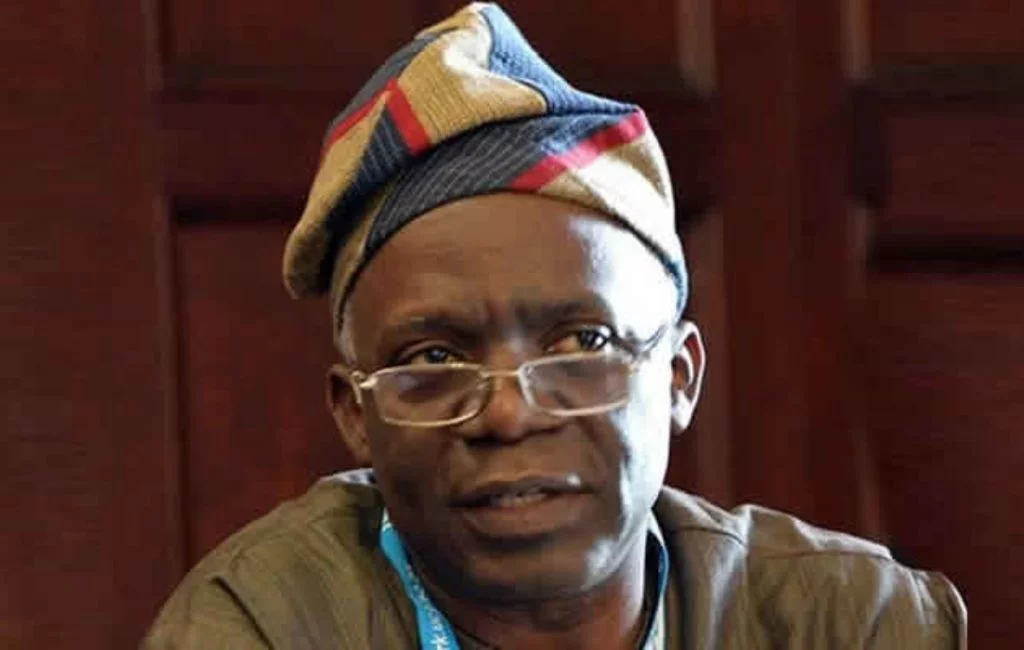Human rights lawyer, Femi Falana, SAN, has stated that the Economic Community of West African States needs to be authorised by the United Nations before it can intervene in restoring democratic rule in the military-held Niger Republic.
Coup plotters led by the head of presidential guards, Gen. Abdourahamane Tchiani, held to power after ousting democratically-elected president, Mohamed Bazoum,
In response, the West African bloc, led by President Bola Tinubu, issued sanctions and threatened military intervention in the Sahel region after a seven-day ultimatum was issued.
Nigeria had cut power supply with Niger Republic, who, in turn, cancelled major military operations with France, The PUNCH reports
However, Falana, in a statement released on Sunday, August 6, cautioned that, “the conduct of ECOWAS, as a regional arrangement, is subject to the provisions of the United Nations Charter, particularly article 53(1) and general international law.”
READ ALSO: Coup: Tinubu Meets With Northern Govs Sharing Boundary With Niger
He said, “In addition to the above constitutional mandate, ECOWAS is required to seek and obtain the authorisation of the UN Security Council to launch an attack on a sovereign nation pursuant to article 53(1) of the United Nations Charter. Article 53(1) provides in part, “The Security Council shall, where appropriate, utilise such regional arrangements or agencies for enforcement action under its authority. But no enforcement action shall be taken under regional arrangements or by regional agencies without the authorisation of the Security Council…”
“This means that the conduct of the ECOWAS, as a regional arrangement, is subject to the provisions of the United Nations Charter, particularly article 53(1) and general international law,” he added.
Falana, therefore, stated that it’d be illegal if ECOWAS launches any intervention inNiger Republic without the approval of the UN Security Council.
Furthermore, the statement added, “It is also clear that any intervention by ECOWAS, apart from being subject to the authorisation of the Security Council, must be on a collective basis and not a unilateral one.
“In the absence of explicit Security Council authorisation, any intervention by the ECOWAS would be illegal, unless it concerns a situation of self- defence, which is clearly not the case in the situation of the planned intervention in Niger.”
Falana mentioned that, according to section 5(4) of the Constitution of Nigeria 1999 (as amended), the president must seek the approval of both houses of the National Assembly.
See the full statement below:
LEGAL REQUIREMENTS FOR DECLARATION OF WAR AGAINST NIGER REPUBLIC
READ ALSO: Coup: Why President Tinubu Can’t Deploy Troops To Niger – SANs
Notwithstanding the resolution of the Economic Community of West African States to resort to the use of force to flush the military junta in Niger in a bid to restore President Mohamed in Bazoum, the Bola Tinubu administration is mandatorily required to seek the approval of both houses of the National Assembly. This is in compliance with section 5(4) of the Constitution of Nigeria 1999 (as amended), which stipulates as follows:
“(4) Notwithstanding the foregoing provisions of this section:
(a) the President shall not declare a state of war between the Federation and another country except with the sanction of a resolution of both Houses of the National Assembly, sitting in a joint session; and
(b) except with the prior approval of the Senate, no member of the armed forces of the Federation shall be deployed on combat duty outside Nigeria.
However, by virtue of section 5(5) thereof, the President, in consultation with the National Defence Council, may deploy members of the armed forces of the Federation on a limited combat duty outside Nigeria if he is satisfied that the national security is under imminent threat or danger:
Provided that the President shall, within seven days of actual combat engagement, seek the consent of the Senate and the Senate shall thereafter give or refuse the said consent within 14 days.
READ ALSO: Niger Coup: 3 Decisions For West Africa As Deadline Nears
In addition to the above constitutional mandate, the ECOWAS is required to seek and obtain the authorisation of the UN Security Council to launch an attack on a sovereign nation pursuant to article 53(1) of the United Nations Charter. Article 53(1) provides in part, “The Security Council shall, where appropriate, utilise such regional arrangements or agencies for enforcement action under its authority. But no enforcement action shall be taken under regional arrangements or by regional agencies without the authorization of the Security Council….”
This means that the conduct of the ECOWAS, as a regional arrangement, is subject to the provisions of the United Nations Charter, particularly article 53(1) and general international law.
Therefore, the ECOWAS can not justify any intervention in Niger without the authorisation of the Security Council.
It is also clear that any intervention by the ECOWAS, apart from being subject to the authorisation of the Security Council, must be on a collective basis and not a unilateral one.
In the absence of explicit Security Council authorisation, any intervention by the ECOWAS would be illegal, unless it concerns a situation of self- defence, which is clearly not the case in the situation of the planned intervention in Niger.
Femi Falana SAN
The Chair,
Alliance on Surviving Covid 19 and Beyond
6th August, 2023.
